“The second world war ended when I was 6 1/2 years old, but the things that happened, I will never forget. We lived in an apartment house in Berlin, and bombs saturated the city night after night. We slept in our clothes so that we could move quickly if the siren went off. When it did, everyone in the building hurried down to the cellar, bringing wet towels to hold over our faces, and we sat in the dark for one, two, three hours at a time while the bombs exploded outside. You can imagine how terrifying that was to a child. To pass the time and to take our minds off the bombing, neighbors would promise a teaspoon of sugar to my 4-year-old sister to sing her little Christmas songs. We stayed there in the dark until another siren went off, signaling the all clear.
“By the time the war was over, the infrastructure of the Berlin had been destroyed. There was no electricity, no food, and no means to buy anything. It was a daily struggle to survive, to have something to eat. Women were put to work cleaning the streets, clearing away the rubble, and scraping the mortar off the bricks so that they could be used again to rebuild. The Russians continued to terrorize the city. My mother kept us close while she worked. She kept an eye on us and we on her because the soldiers would rape a woman alone. I remember the swarms of flies in the city from all the corpses too. There weren’t enough coffins to bury everyone. There were bodies everywhere, in the streams, in the fields, in the rubble, and we were given shots to prevent a typhus epidemic.
“I started to school, but I couldn’t take anything in. I was too shell-shocked. In the winter, Mother pulled me on a sled to school because I had no shoes. She cut up carpet pieces and tied them to our feet. There were no toothbrushes and not enough water to wash our bodies or our hair. We had nothing.
“Sometime after the war, my grandmother and grandfather received a little apartment, and it was my grandfather’s job as the maintenance man to collect the rent and make repairs. There was still no electricity, so in the evenings my grandfather worked by the light of an oil lamp, making furniture from the wood he could salvage. This table, this cabinet. He made both of them with his own hands.
“This doll is the first one I had after the war. My mother made the little outfit and bonnet from the silk of parachute cords. I got it for Christmas in 1947. That was the first Christmas we received gifts. You don’t know how many nights I held onto this doll for fright. When there were thunderstorms with the noise and the lightning, it sounded like bombs to me. The wind, the shadows---everything frightened me. I had nightmares until I was eighteen years old. You relive the bombing; you cannot forget it. It’s not that you ponder it, but the memories come unbidden. The mental pictures and the fear stay with you. I'm 77 now, and I’ve kept this doll all these years, ever since I was a child in Berlin. When everything is taken away, you treasure what you have.”
“By the time the war was over, the infrastructure of the Berlin had been destroyed. There was no electricity, no food, and no means to buy anything. It was a daily struggle to survive, to have something to eat. Women were put to work cleaning the streets, clearing away the rubble, and scraping the mortar off the bricks so that they could be used again to rebuild. The Russians continued to terrorize the city. My mother kept us close while she worked. She kept an eye on us and we on her because the soldiers would rape a woman alone. I remember the swarms of flies in the city from all the corpses too. There weren’t enough coffins to bury everyone. There were bodies everywhere, in the streams, in the fields, in the rubble, and we were given shots to prevent a typhus epidemic.
“I started to school, but I couldn’t take anything in. I was too shell-shocked. In the winter, Mother pulled me on a sled to school because I had no shoes. She cut up carpet pieces and tied them to our feet. There were no toothbrushes and not enough water to wash our bodies or our hair. We had nothing.
“Sometime after the war, my grandmother and grandfather received a little apartment, and it was my grandfather’s job as the maintenance man to collect the rent and make repairs. There was still no electricity, so in the evenings my grandfather worked by the light of an oil lamp, making furniture from the wood he could salvage. This table, this cabinet. He made both of them with his own hands.
“This doll is the first one I had after the war. My mother made the little outfit and bonnet from the silk of parachute cords. I got it for Christmas in 1947. That was the first Christmas we received gifts. You don’t know how many nights I held onto this doll for fright. When there were thunderstorms with the noise and the lightning, it sounded like bombs to me. The wind, the shadows---everything frightened me. I had nightmares until I was eighteen years old. You relive the bombing; you cannot forget it. It’s not that you ponder it, but the memories come unbidden. The mental pictures and the fear stay with you. I'm 77 now, and I’ve kept this doll all these years, ever since I was a child in Berlin. When everything is taken away, you treasure what you have.”
The table and cabinet Maria's grandfather made:
Maria's doll:
Maria Nichols was born in Germany in January of 1939. The bronze sculpture (below) that she brought to America from her homeland is part of the What I Kept exhibit on display March 14 - July 2, 2015 at the University of Memphis Art Museum. This exhibit features the keepsakes (and the stories behind them) of women who immigrated to Memphis from around the world. What I Kept is curated by Penny Dodds Karwacz and photographed by Jason Miller.
For more information on the What I Kept exhibit at the University of Memphis, go to---
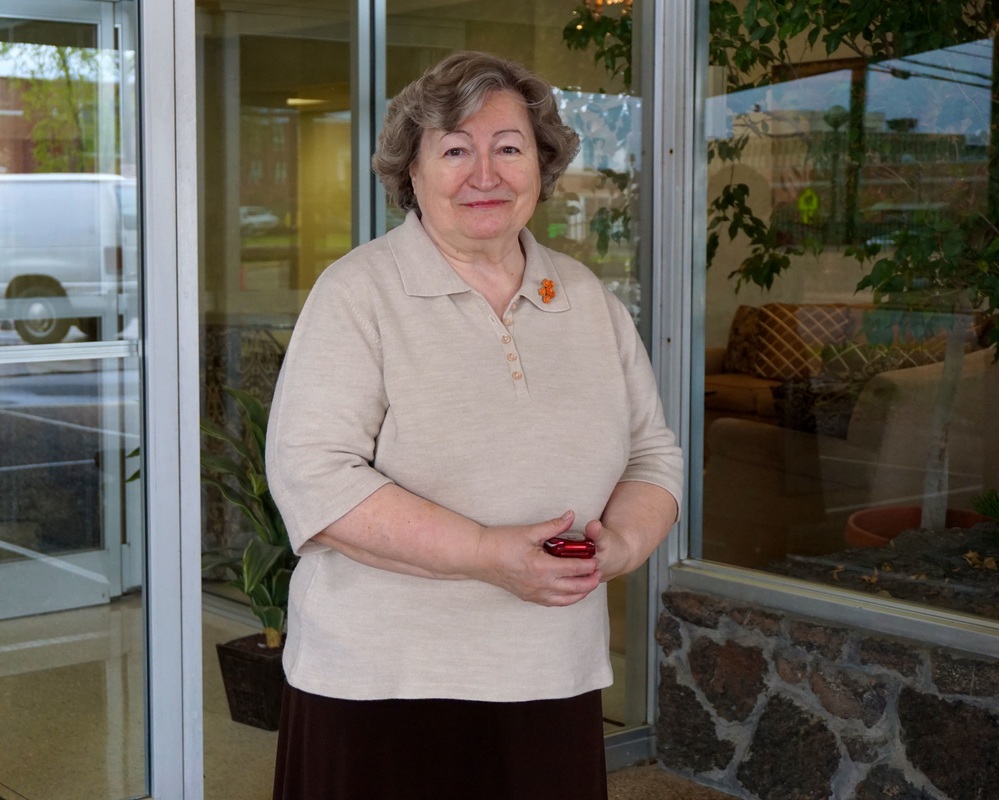
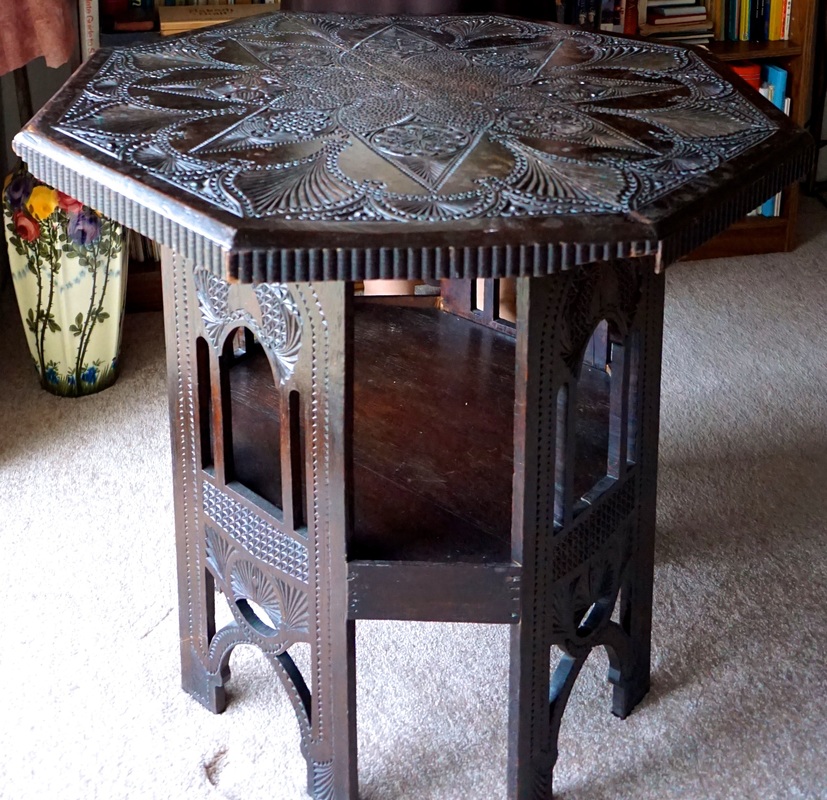
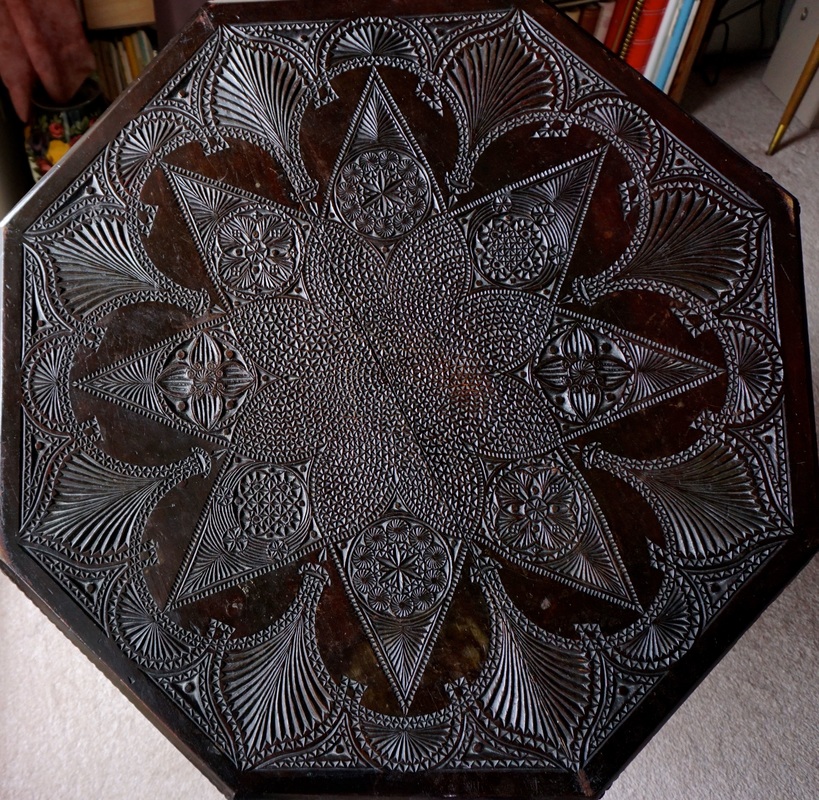
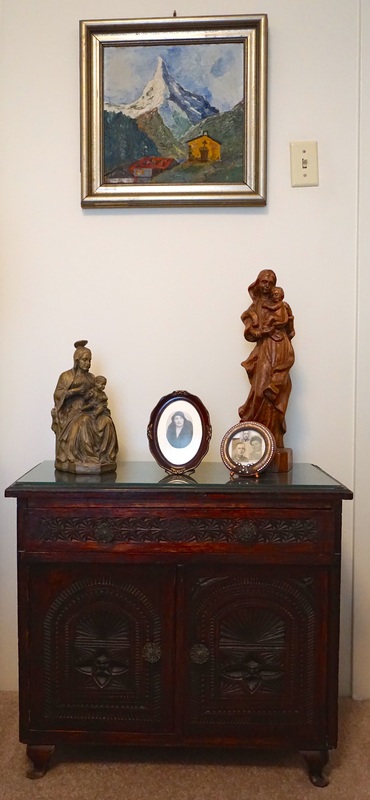
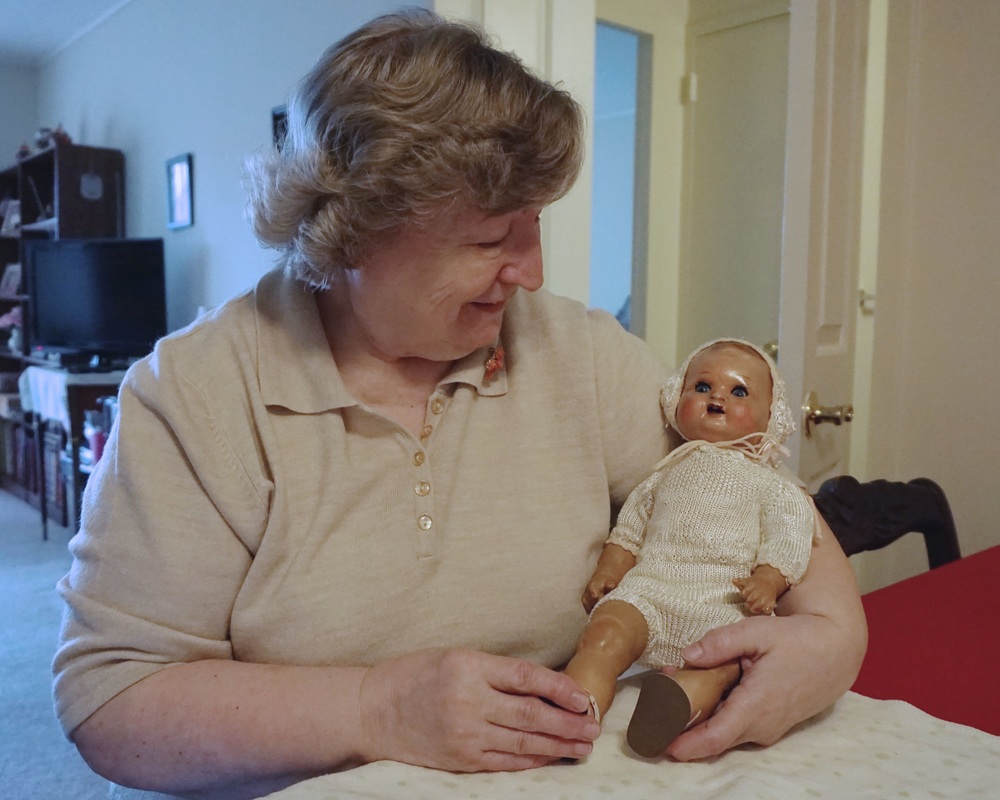
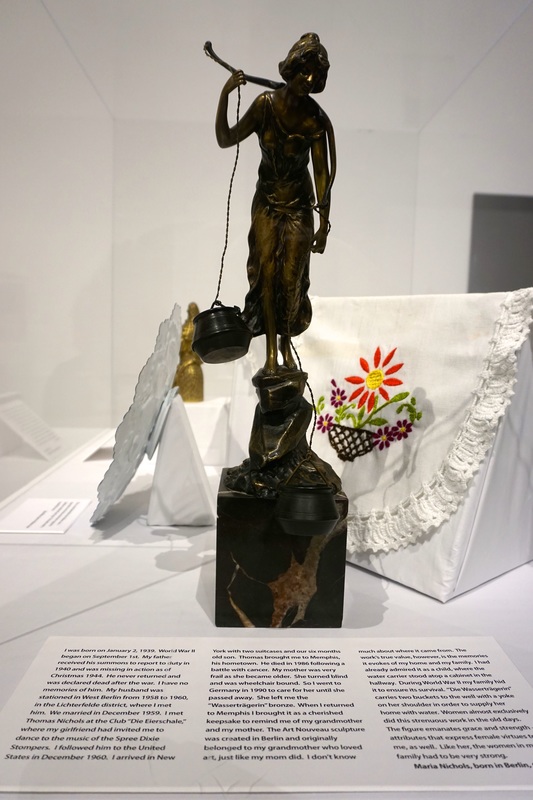
 RSS Feed
RSS Feed